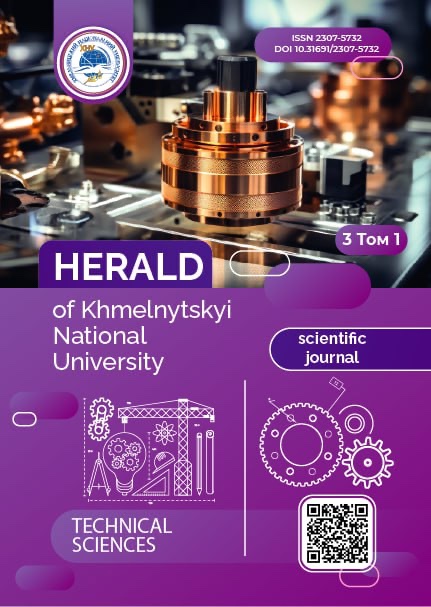DEEP LEARNING-BASED SYSTEM FOR SMART HOME ELECTRICITY CONSUMPTION FORECASTING
DOI:
https://doi.org/10.31891/2307-5732-2025-351-62Keywords:
LSTM neural networks, forecasting algorithm analysis, software implementation of a forecasting system, time series data processing, neural network hyperparameter tuning, artificial intelligence in forecastingAbstract
The problem of inefficient electricity consumption management in smart homes under conditions of energy instability in Ukraine has been identified. Uneven load on the power grid, caused by emergency outages and an unstable supply schedule, complicates the rational distribution of resources. The study explores the possibility of using LSTM neural networks for electricity consumption forecasting, allowing for the consideration of long-term dependencies in time series and improving prediction accuracy.
An improved energy consumption forecasting model has been developed, which more effectively accounts for historical patterns and external factors such as air temperature, household occupancy, and time of day. A software model has also been designed to automate the processes of data preprocessing, feature selection, and neural network training. A forecasting algorithm has been proposed that considers the variable structure of time series, detects consumption anomalies, and adapts to dynamic energy demand conditions.
The developed system has been implemented as a software module based on Python, utilizing TensorFlow and Keras libraries. Data processing and analysis were conducted using Pandas and NumPy, while the model was deployed in a Jupyter Notebook environment with Docker containerization, ensuring reproducibility, scalability, and easy integration with other smart home management systems. Special attention was given to optimizing hyperparameters, selecting the most effective activation functions, and reducing computational overhead.
Testing confirmed the effectiveness of the developed system, improving the accuracy of electricity consumption forecasting and promoting more rational use of energy resources. The results demonstrated a significant reduction in forecasting errors compared to traditional statistical methods. Future research perspectives include expanding the set of input parameters, improving hyperparameter tuning mechanisms, and linking the system with automated energy management platforms. These improvements will contribute to cost reduction, increased power supply stability, and enhanced energy efficiency for smart homes.
Downloads
Published
Issue
Section
License
Copyright (c) 2025 ВАСИЛЬ ТЕСЛЮК, ІРИНА ГАДЬО, ОЛЕГ ВАТУЛЯК, РОМАН СИДОРЕНКО, ЮРІЙ РУТЕЦЬКИЙ (Автор)

This work is licensed under a Creative Commons Attribution 4.0 International License.

